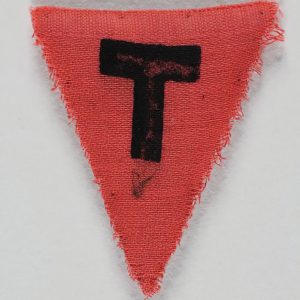Krystyna Żywulska and What It Took to Survive

A note from the composer, Jake Heggie:
The woman we know today as the author and lyricist Krystyna Żywulska was a Holocaust survivor with an astonishing, complex, sometimes baffling history. She was born Sonia Landau in 1914 to a Jewish family in Lódz, Poland, and was studying law at Warsaw University when World War II erupted.
In 1941, she and her family were relocated to the Warsaw ghetto. Seeing a window of an opportunity one day, Sonia and her mother walked out of the ghetto in broad daylight, leaving her father behind. She adopted the name Sophia Wisniewska and worked for the underground resistance until the Gestapo arrested her in 1943. Refusing to name names for the Nazis, she changed her own name to Krystyna Zywulska (born in 1918 rather than 1914) and was sent to Auschwitz-Birkenau as a political prisoner (not a Jew).
She had no experience as a writer but crafted lyrics of protest and survival and set them to well-known folk tunes and popular melodies. It was suicide to write her lyrics down, so they were passed from inmate to inmate by word of mouth.
An inmate with some authority was moved by Krystyna’s work and decided to save the “camp poet.” After a year of disease, lice, and backbreaking labor in the fields, Krystyna was given one of the few choice jobs inside the Effektenkammer (warehouse of personal effects).
She and her co-workers took inventory and took charge of the possessions that thousands upon thousands of Jewish women and children from all over Europe brought with them to the camp. Often, once their possessions were taken and cataloged, the prisoners were marched next door to the ovens for execution. Krystyna heard the screams and cries, saw the smoke, smelled the stench, and had to live in an almost unimaginable situation: to survive, she had to take and catalogue the personal belongings of Jewish women and children, then hear them murdered next door.
At the end of the war, during a death march when the camp was being evacuated, Krystyna once again escaped and survived. After the war, She chronicled the atrocities she witnessed in a startlingly candid memoir, I Came Back (also titled I Survived Auschwitz), published in 1946. She still did not claim her Jewish identity. or ancestry. In the book, one feels strongly that Krystyna wanted to explain what happened without holding back.
The book is honest, revealing, and profoundly moving. It compels the reader to ponder the nature of memory and the parts of the past that remain in the shadows.
Act 1 of Out of Darkness: Two Remain explores those shadows, those empty places.
Krystyna Zywulska died in 1993, having reclaimed her Jewishness in the 1960s. She was interviewed late in life by Barbara Engleking for her nonfiction book Holocaust and Memory (published in Polish in 1994 and English in 2001). Krystyna’s responses to Engleking’s questions show her frustration in trying to find language that might adequately describe the enormity of what happened, or the extraordinary complexity in a fog of memories.
In that interview, a woman whose words saved her life now struggled to find words to describe what happened. It is This irony that prompted the idea for the scenario.
Of course, it is not that she couldn’t find the words. it is that none could ever truly describe what she and millions of others experienced. The past is thus clouded not by a lack of willingness to define what happened, but rather by the limits of language itself.
Like the uncertainty principal that governs the quantum heart of the world, history, too, seems to be ruled by immutable paradoxes. If you measure something, you change it. If you describe something, you change it as well — even the past.
Act 1 is about the struggle to describe harrowing, unimaginable situations to people who weren’t there. It is also about what it is to survive. Like many who make it through a war, Krystyna survived not through grand acts of heroism, but through near maddening acts of survival. We do whatever it takes to live another day: to see another sunrise.


